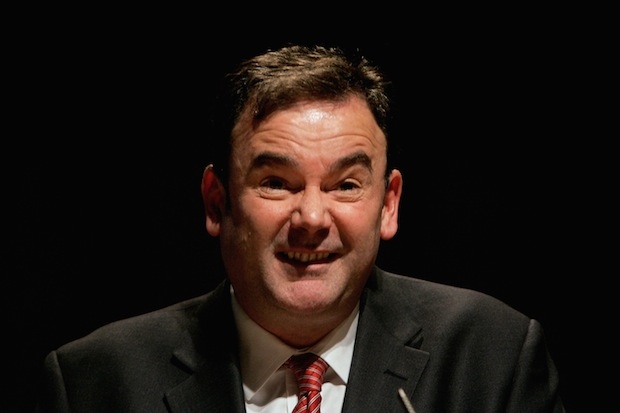Everyone in Labour is having their say about where the party went wrong in the run-up to the election. But what if it’s still making the same mistakes as it tries to elect a new leader? At a seminar on Friday on Labour’s defeat, Ed Miliband’s policy chief Jon Cruddas fretted that the way the party was running its leadership contest was giving the Tories the same advantage they were handed by the same sort of contest in 2010 He said:
‘Last time round we embarked on… a leadership election which worked through the summer and allowed our opponents to redefine the terms of debate that were locked in for the next five years, and we’re repeating exactly that now.’
Cruddas said he wanted a discussion about ‘what we stand for and who we represent instead of just going into a conversation about who the leader is’, and did sound rather supportive of the idea of an interim leader of the party while Labour held that discussion. But that’s not going to happen, and so whoever is elected Labour leader will have to deal with the fact that the Tories have, as they plan to do, occupied the centre ground while also trying to answer those fundamental questions about what it is that Labour stands for.
Also speaking at the seminar was Miliband’s speechwriter and friend Marc Stears, who explained how the Labour leader had tried to answer that question of what the party stood for. This involved, rather strikingly, careful study of Margaret Thatcher’s 1979 Tory manifesto:
‘There were many people telling us that this was – or at least potentially – 2008 and afterwards was what people called the 1975 moment, and what they meant by the 1975 moment was the start of a discussion about some significant change to the fabric of our political, social and economic system, so people have identified basically the beginning of a crisis in the four years prior to Mrs Thatcher’s election as a moment when people were open at least, not persuaded, but open to significant reforms in the way things were run.
‘And we often talk about the 1979 Thatcher manifesto as kind of capturing the spirit which enthroned those four years and saying now we’re not going to do all this now but there is a potential shift here in some fairly fundamental ways in which things are run and we would go back, you know, even though it’s probably not really a secret, but go back to read the beginning of that manifesto frequently to try and say, OK what is it to run a political project which actually starts there.’
Stears explained that Miliband often started strategy meetings by asking ‘what’s the exam question today?’ and that the exam question for his leadership was whether it was possible to change the economic, social and political order. There was enough evidence that there was an appetite for this, and so this was what Miliband tried to pursue, he said.
But Cruddas also argued that the 2012 ‘ominshambles’ Budget put a brake on the really radical thinking about how to respond to this because it encouraged a view in the party that there was a poll lead it could lock in and ‘all of this heavy lifting that you’d started to do, put it in the too-difficult box and, you know, you can win and remain united’. Clearly whoever encouraged this view is Cruddas’ least favourite person, but he did accept that everyone in the party had ended up accepting that view:
‘We all looked at these numbers and we all sort of colluded with this, and then it turned out there was a big hole in the bucket, and that’s it, the music stopped, and we are left now backfilling about what we should have done.’
Cheerily, he warned that things might not have ‘bottomed out yet’, which is presumably where the problems that he sees with the current leadership campaign come in.







Comments